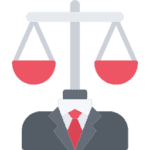Civil Complaint for Damages, Declaratory Relief, Extraordinary Writs, and Preliminary Injunction
Federal Civil Rights Complaint (42 USC 1983), including requests for damages, injunction, extraordinary writs, and declaratory relief out of the US District Court for the Eastern District of Michigan.
Declaratory relief refers to a judgment of a court which determines the rights of parties without ordering anything be done or awarding damages. By seeking a declaratory judgment, the party making the request is seeking for an official declaration of the status of a matter in controversy.
The declaratory judgment is generally considered a statutory remedy and not an equitable remedy in the United States, and is thus not subject to equitable requirements, though there are analogies that can be found in the remedies granted by courts of equity.
Declaratory relief refers to a judgment of a court which determines the rights of parties without ordering anything be done or awarding damages. By seeking a declaratory judgment, the party making the request is seeking for an official declaration of the status of a matter in controversy.
Plaintiff’s Memorandum in Support of Motion for Approval of Plan for Class Notice
Plaintiff’s Brief in support of class action notice to class members following class certification. US District Court for the District of Colorado.
Federal Civil Complaint for Copyright Infringement
Federal Civil Complaint for violation of copyright.
As a general matter, copyright infringement occurs when a copyrighted work is reproduced, distributed, performed, publicly displayed, or made into a derivative work without the permission of the copyright owner.
Copyright infringement can be a felony or a misdemeanor. A felony charge must involve an infringement of the copyright owner’s reproduction or distribution rights. A felony conviction carries a maximum sentence of five years in prison and a maximum fine of $250,000.
Copyright infringement is using someone else’s work without getting that person’s permission. … The owner of a copyright gets to decide who can legally make copies of that work. It is illegal to copy large sections of someone else’s copyrighted work without permission, even if you give the original author credit.
The legal penalties for copyright infringement are: Infringer pays the actual dollar amount of damages and profits. The law provides a range from $200 to $150,000 for each work infringed. Infringer pays for all attorneys fees and court costs.
US District Court for the Eastern District of Michigan
Federal Court Civil Complaint with Request for Injunctive Relief
Federal Civil Complaint based on diversity of citizenship, and including claims for misappropriation of trade secrets and breach of contract; includes request for injunctive relief. US District Court for the District of Minnesota.
Defendants’ Motion for Summary Judgment
Document is a request for the Court from the Defendant to rule that the other party has no case, because there are no facts at the issue.
Wisconsin Claim for Lien – Construction (Recordable)
Wisconsin Claim for Lien form for Construction.
Defendant Rule 56 Motion For Summary Judgment (with Attached Brief)
Motion for Summary Judgement in Breach of Contract and Mechanics Lien case. Lawsuit filed by Contractor for payment for service performed and lien case.
Excessive Force Against Sheriff Department -42 U.S.C. §1983
Complaint filed against a sheriff department for excessive force.
Response to motion for Summary Judgment on Title VII Discrimination
A Plaintiff response to motion for summary judgment in a Title VII case against the City Police Department
Complaint for Fair Debt Act
A lawsuit Filed for Violation For Federal Fair Debt Act
Stipulation to hold issue in abeyance
Stipulation to hold issue and continue hearing
Duplicative Experts, Motion in limine to preclude
Motion in limine to preclude duplicative expert testimony









